It's the time of year when I report on my book sales and reflect on what I could do better! I hope you find this article useful for your own author business, whatever stage you're at.
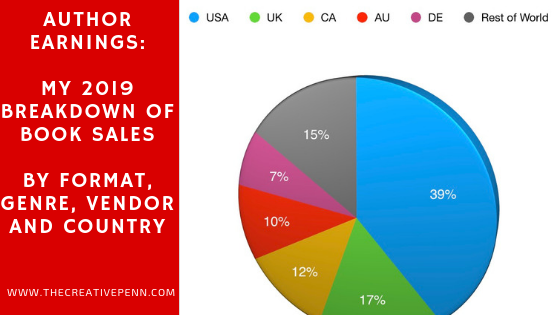
My company tax year runs May – April and although I keep a tight rein on my income, expenses and cash flow throughout the year, I only do management reporting annually when I break down my revenue in various ways to figure out what I need to change, stop doing or do more of.
These figures are all based on revenue, the money that has actually come into my bank account, not sales volume (i.e. number of books sold).
Because I publish through so many sources, I don't actually track book sales numbers and have definitely lost track at this point. Let's be honest – the money is more important anyway!
You can always see my previous years' breakdown at TheCreativePenn.com/timeline along with other significant articles from my author-entrepreneur journey. Click here for 2018 book sales income breakdown specifically.
[Thanks to Russell Philips, Virtual Assistant at Author Help who collated all my figures from all the various platforms.]
Total Income Breakdown
I've been running this business since 2008 and my revenue split has changed over the years, but it is all based on my writing.
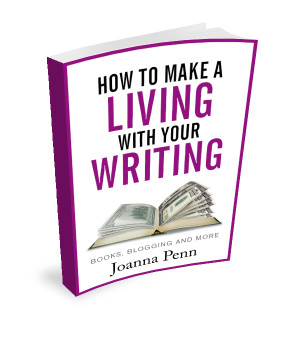
My total business income is down by 5% this year. That's not really a significant amount but still a downward trend despite publishing more books and continuing to publish 3x a week on this site. Hence my focus on changing things up over the next 10 years (see my big AI disruption post here).
My book sales income is slightly up, and although ebook revenue is down, it is more than made up for by audiobook and print sales.
My book sales income alone is around about 2.5x the UK national average salary and 7x the average author income reported in the recent All Party Writer's Group report.
Remember, I have never had a breakout success, I've never been stocked in high street bookstores or had a supermarket deal. I've made a living with my writing since 2011 as an independent author entrepreneur and continue to subscribe to the consistent hard-working author model! You don't need to be a household name to make a decent living with your writing.
Of course, I make less than some authors I know – some indie, some traditionally published. But comparisonitis is dangerous, and instead, we should be comparing our current selves against where we were last year, and where we want to be next year. Here's my detailed breakdown.
Book Sales Revenue by Format
My audiobook revenue has almost doubled again this year (8% in 2018, now 15%) as well as print sales being slightly up (21% in 2018).
I am not in KU, so this is wide ebook income and I am thrilled that my focus on wide distribution for the other channels has resulted in a higher percentage of other format sales. Next year, I'll break it down by paperback, hardback and Large Print as well to give those formats a full year of sales.
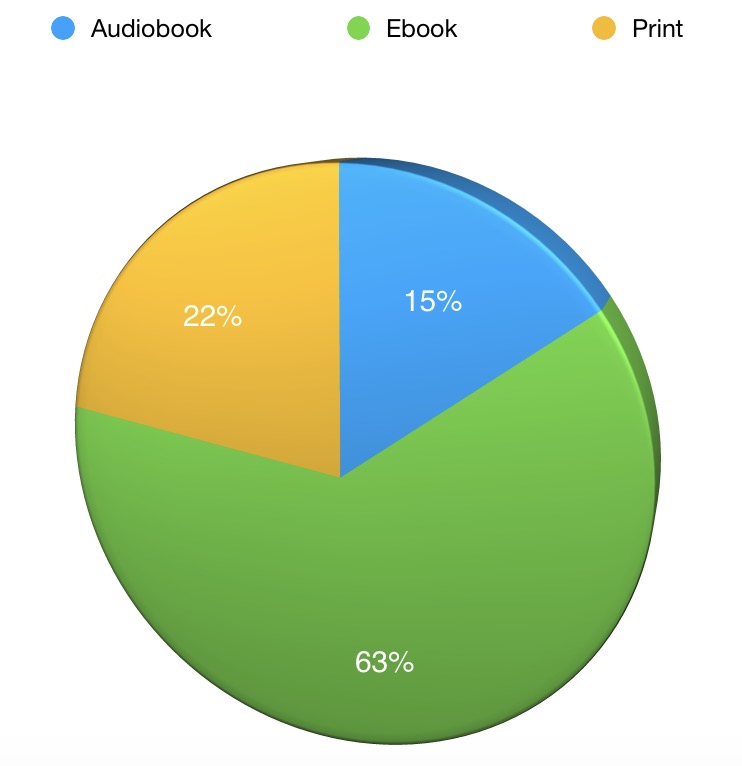
Book Sales by Vendor
Even though I publish wide, it's not surprising that Amazon continues to be the largest share of revenue given their dominance in the English speaking markets.
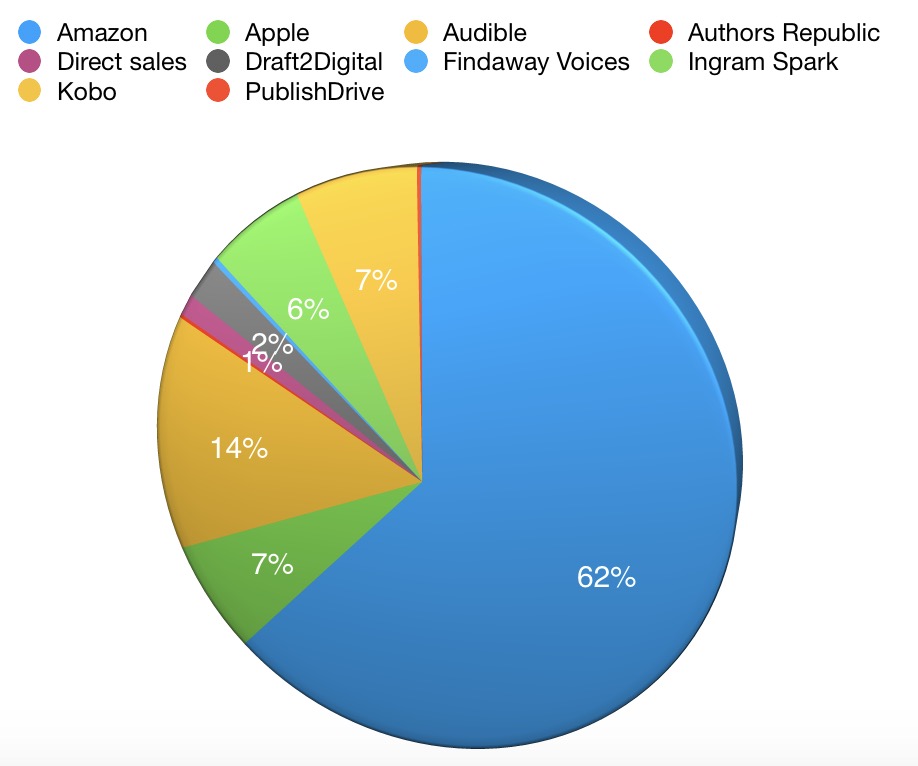
My advertising costs are actually down on last year and that may account for book sales staying much the same even though I have more books out.
20% of my book sales income was spent on advertising, which includes BookBub, Amazon Advertising, Written Word Media and some other things like Facebook Ads, although most of my Facebook spend was for affiliate promotions. I'll be investing more in ads this year.
Revenue by Fiction / Non-Fiction
Currently, I have 10 non-fiction books (2 of which are co-written), and 20 fiction books (not including box-sets, 5 co-written). But as you can see, non-fiction brings in more income.
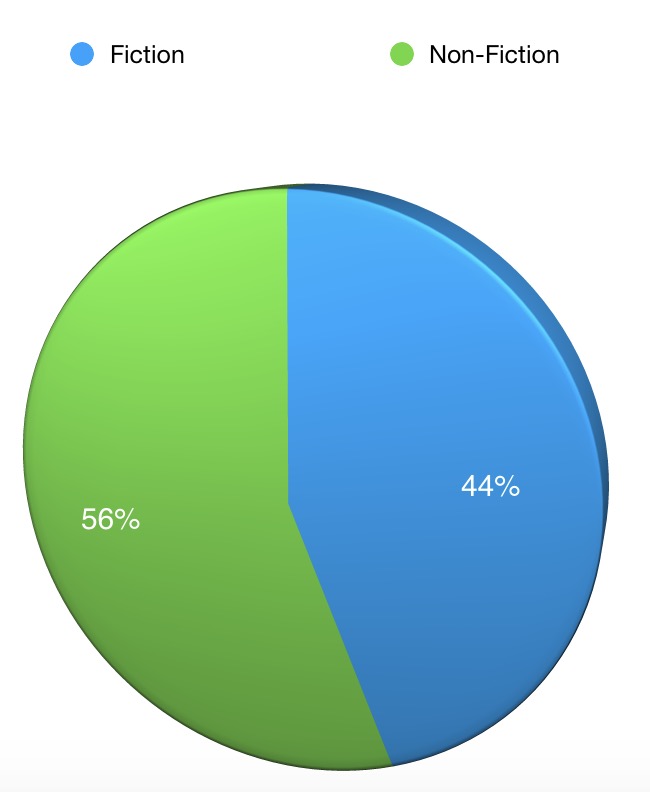
There are several reasons for this — and of course, this is all anecdotal based on my book sales. Every author will be different.
- I have a much more developed marketing platform for my non-fiction with this site and my podcast. I hope to replicate this with Books And Travel over the next few years but Content Marketing for Fiction is a long game.
- The rise in print sales and audiobooks are mostly for non-fiction, as per the breakdown below. Non-fiction readers are less price sensitive and may buy in multiple editions e.g. audiobook and then print for reference.
- I write thrillers and dark fantasy and many genre fiction authors are doing well in KU + a lot of paid ads, which is not my business model. [See my reasons for wide publishing here.] I have not done much marketing of my fiction books on other platforms in the last year. I should be doing more BookBub and Facebook in terms of advertising for the other platforms, but I tend to focus on other things like creating more, as that is what I enjoy 🙂
- Fiction sales go up and down but the books are long term earners (as long as you retain the rights). They don't go out of date, unlike non-fiction, which you often have to rewrite. Fiction is a long-term career and over the long-term, I expect those books to earn more, but short-term income is clearly easier with non-fiction.
- Paid ads which are easier to target with non-fiction keywords and there is less competition for bids so the clicks are cheaper (at least at the moment!)
You can see the variability by store in the figure below. Clearly, my audio sales are primarily non-fiction, as well as my print sales through Ingram. My direct sales using Payhip are also primarily non-fiction, because of the traffic to this website and the size of my audience after 10+ years in this niche.
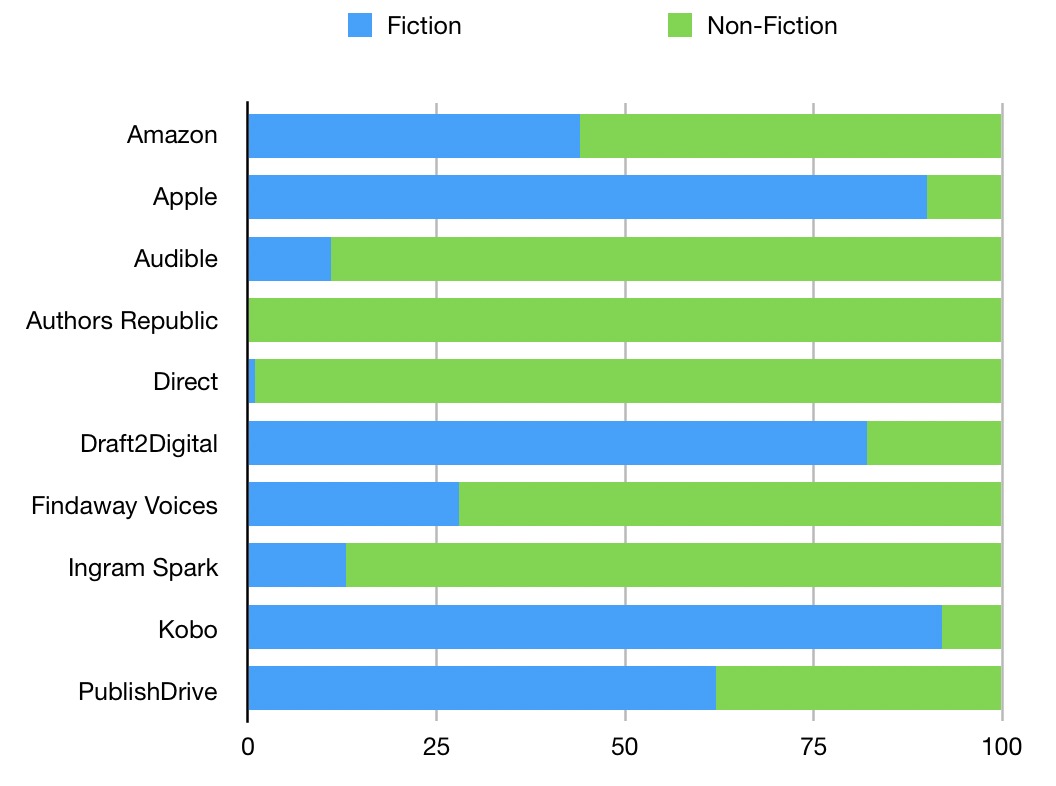
Book Sales Revenue by Country
I have sold books in 54 countries this year (in English) which I am thrilled about 🙂 That doesn't include free downloads which have reached even further.
I love being an international author! Owning your global rights is a secret weapon as you can take every opportunity to reach more readers. Sometimes I feel like this is the most significant difference between me and my traditionally published author friends, who are usually only concerned with one territory e.g. UK if they are British, or US if they are American. But as indie authors, it's possible to sell in 190 countries so we can focus on international sales in multiple formats.
This country split has changed quite significantly in the last year, as I suggested it would as digital sales start to spread.
I've included last years image as a comparison so you can see how much smaller the US sales are as a percentage of the whole and how much the Rest of World segment has grown. I think this will continue to accelerate with the spread of 4G and 5G internet to another 4 billion people by 2025. If you want to reach a global market, check out my episode on publishing wide and the free ebook on Successful Self-Publishing.
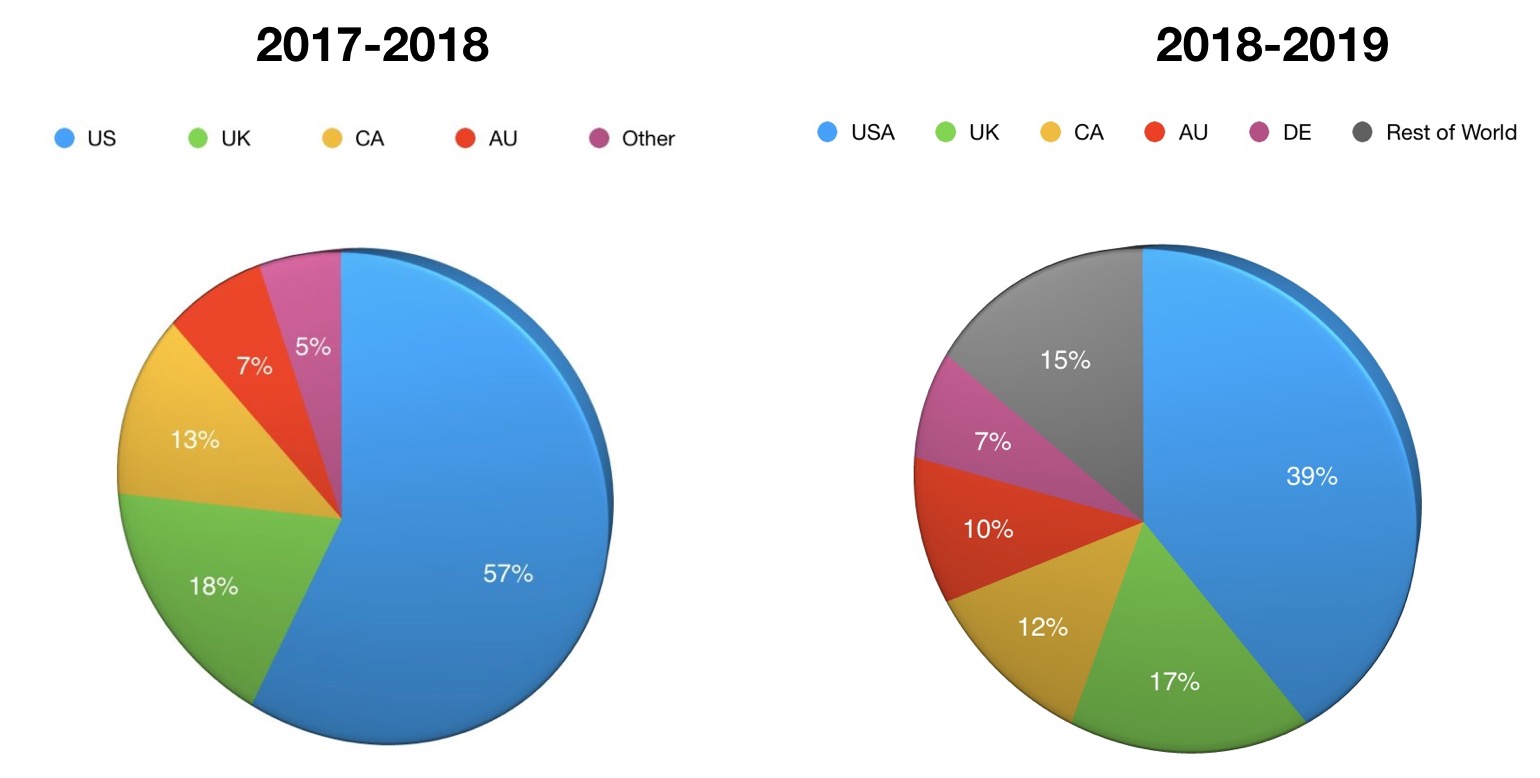
Australian sales have grown and so have German sales, even though my books are in English. Rest of the World has grown from 5% to 15% of revenue. This encourages me to focus more on my international growth as it really amplifies the multiple streams of income effect.
What am I going to focus on in the next year?
As I stated in my 2019 goals, I am focusing on being a better publisher. That means getting all my backlist into the formats that sell. More print. More audio. I am also going to investigate some of the AI-assisted translation services becoming available, although I expect that to grow further in 2020 onwards.
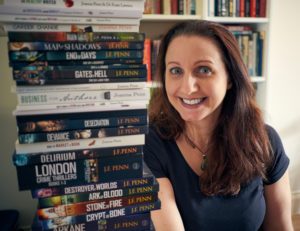
I did think I would write more fiction this year, but I am too much of a polymath to focus on one genre, so I will continue to write and publish the books I want when the Muse strikes me. I have a list for the rest of the year, so will just keep on keeping on. I love my work and I don't want to put pressure on my creativity.
I will never be a high-volume writer in one targeted genre. I will never write to market. I will never be an expert in paid ads. And that's OK! We are all different and indie is a broad church with many routes to becoming an author-entrepreneur. You get to choose your path and no way is better than any other.
I will continue to focus on global sales, and I'm excited about Google adding a Podcast app and also putting podcasts into search since my podcast has been downloaded in 215 countries, and has definitely driven book sales across the globe. I hope the same will happen with my fiction now I have started the Books and Travel Podcast as well. Exciting times!
So that's my round-up. Have you reported on your annual sales revenue and broken it down this way? Please do share in the comments if you have anything, or ask any questions you'd like answered.


Thanks Joanna, it’s good to know where you stand compared to other authors. I really appreciate your candor.
Thanks for sharing Joanna, and all the best for another awesome year in 2020.
Thanks Joanna. This is very informative. Please, stay safe during this period of COVID-19.
Thanks for sharing! Every little bit of data helps struggling authors figure out where time is best spent. Your breakdown by store is helpful – mirroring my sales, but you have a number of places I don’t sell from. Will look those up! You also mentioned a Google podcast app that I know nothing about – will check it out. Thanks for your help!
Congratulations about your success. I got to know about you while I was reading write, publish and repeat. Truly inspiring. Well I am going to publish my first book tomorrow. Thanks anyway.
Hi, so first, I love your podcast!
I live in Canada and I will be writing literary semi-fiction satire genre novella ebook and I am curious, is there still a market in literary fiction in general, especially in satire example Animal Farm I can think of.
Also, I see you have multiple stream of income as you also mentioned in your podast which I love!!! I see a mix of ebooks and print on demand books and audiobooks, excluding podast/speaking gigs and affiliate marketing, what about going broader for income streams as a writer say in merchandising maybe writing your own version of hallmark cards on etsy, a coffee mug with a few lines of inspirational words,t-shirts, bookmarks, buttons, posters, or even a special edition book hand made by the authors using paper craft ideas from the book (I love this idea, but not sure if its practical) hahaha,
Thanks!
I do have a store at https://society6.com/creativepenn but I don’t use it much or promote it. Merch is one way of making some extra money, for sure. Check out – https://www.thecreativepenn.com/2016/12/12/merchandising-for-authors/
and also Meg La Torre – https://www.thecreativepenn.com/2020/11/16/youtube-for-authors/